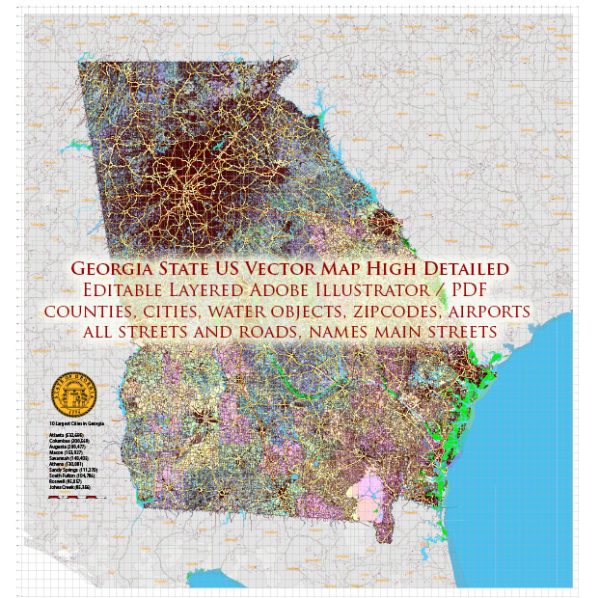Georgia, a state in the southeastern United States, has a significant maritime industry and plays a crucial role in transportation and trade. Here’s a general overview of Georgia’s maritime industry and transportation:
- Ports:
- Port of Savannah: The Port of Savannah is one of the busiest and fastest-growing container ports in the United States. It is a major gateway for trade, handling a diverse range of goods, including containerized cargo, bulk cargo, and automobiles.
- Brunswick Port: Located near Savannah, the Brunswick Port is a key facility for the handling of bulk cargo, including automobiles, machinery, and forest products.
- Economic Impact:
- The ports in Georgia contribute significantly to the state’s economy by generating jobs and fostering economic growth. The transportation and logistics industry associated with these ports provides employment opportunities and supports various businesses.
- Transportation Infrastructure:
- Interstates and Highways: Georgia has a well-developed network of interstates and highways that facilitate the efficient movement of goods within the state and to neighboring regions. This infrastructure supports the connectivity of the ports with key markets.
- Railways: Rail plays a crucial role in transporting cargo to and from the ports. The state is served by several Class I railroads, enhancing the connectivity of the maritime industry with inland areas.
- Airports: While not directly related to the maritime industry, Georgia’s airports, including Hartsfield-Jackson Atlanta International Airport, contribute to the overall transportation network, facilitating the movement of people and goods.
- Logistics and Distribution Centers:
- Georgia’s strategic location and efficient transportation infrastructure have attracted logistics and distribution centers. Companies often choose Georgia as a distribution hub due to its proximity to major markets and the availability of reliable transportation options.
- Inland Waterways:
- In addition to maritime ports, Georgia has a network of inland waterways, including the Savannah River. These waterways contribute to the transportation of goods and materials, especially for industries located along the rivers.
- Trade and Global Connections:
- The Port of Savannah serves as a vital link in global trade routes, connecting businesses in Georgia with international markets. The state’s ports handle a diverse range of imports and exports, supporting industries such as manufacturing, agriculture, and retail.
- Expansion and Investment:
- The Georgia Ports Authority has undertaken various expansion projects to accommodate the growing demand for containerized cargo. These initiatives aim to enhance the capacity and efficiency of the ports.
- Environmental Considerations:
- Environmental sustainability and conservation efforts are becoming increasingly important in the maritime industry. Ports in Georgia have been working on initiatives to reduce environmental impacts, such as implementing cleaner technologies and adhering to environmental regulations.
For the most up-to-date and detailed information on Georgia’s maritime industry and transportation, it is recommended to consult official sources such as the Georgia Ports Authority, state government reports, and recent news articles.


 Author: Kirill Shrayber, Ph.D. FRGS
Author: Kirill Shrayber, Ph.D. FRGS